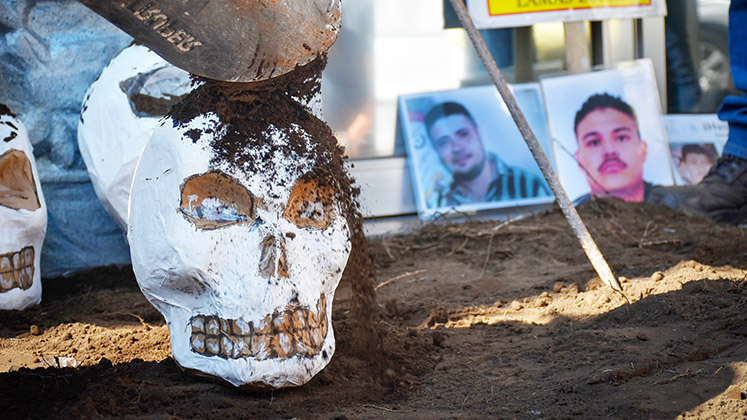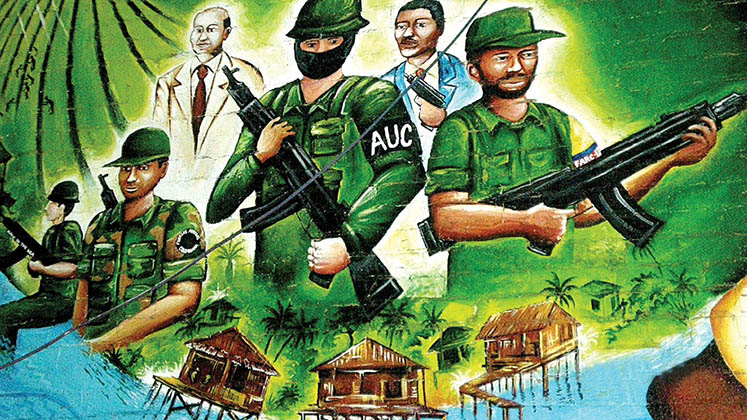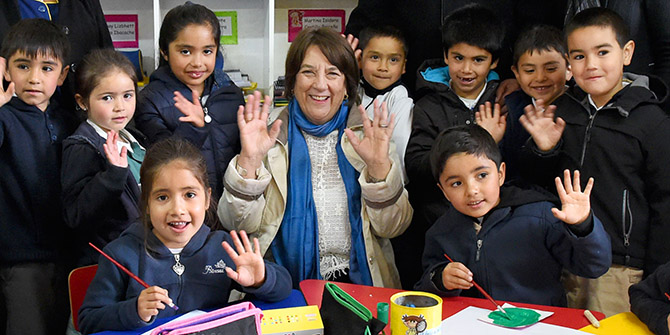During the COVID-19 crisis, Brazil’s longstanding problems of food insecurity and food inequity have only become more pronounced. While the consumers in greatest need are left with barely anything to eat, small farmers find themselves unable to bring their goods to market. Fresh food supply chains need to be redesigned so that they properly connect and protect their weakest links, write André Duarte, Lars Meyer Sanches, Michele Martins e Vinicius Picanço (all from Insper, São Paulo). Part of a series of blogs linked to the British Academy-funded project Engineering Food: infrastructure exclusion and ‘last mile’ delivery in Brazilian favelas.
• Também disponível em português
Amongst the 17 Sustainable Development Goals established by the UN in 2015 is the goal of ending hunger, achieving food security, and improving nutrition, particularly for vulnerable populations. A sub-target of this goal is a doubling both in agricultural productivity and in the income of small farmers and their families.
Yet a recent report by the FAO (UN Food and Agriculture Organisation) highlights that 820 million people are still going hungry worldwide, whereas roughly two billion face moderate to severe food insecurity. These figures explain rising rates of malnutrition and obesity across the globe; obesity correlates strongly both with food insecurity in general and with restricted access to nutritious food in particular.
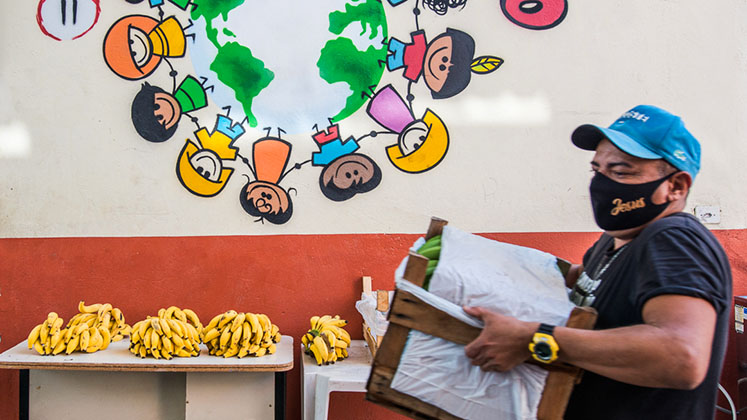
In Brazil, millions of people in large urban centres have serious problems accessing healthy food. Changes in household food availability in Brazil over time indicate that fresh or minimally processed foods are being displaced by processed and ultra-processed foods. And poorer suburbs and favelas have a significantly lower availability of healthy and nutritious products (fruits, vegetables, and legumes) when compared to wealthier neighbourhoods, which only reinforces the country’s deep social and food inequalities. Shops in poorer areas tend to privilege the supply of processed or ultra-processed products, which are usually cheaper and less perishable.
Many of these neighbourhoods can be classed either as food deserts, which provide little or no access to fresh or minimally processed food, or food swamps, which offer mainly processed or ultra-processed foods that are high in calories and low in nutrients.
Nutrition during the COVID-19 crisis
During the pandemic, access to fresh food has only deteriorated further for residents of low-income areas. This is true even for those that receive food donations on a regular basis: most food baskets contain processed, non-perishable foods because they are easier to handle, store, and distribute.
The closure of schools and day care centres across the country has also deprived children and adolescents of the one daily healthy meal that they were guaranteed to receive. A recent UNICEF survey revealed that Brazilian low-income households with children and adolescents have suffered most from the sudden drop in incomes during the crisis, leading in turn to greater food insecurity and higher consumption of unhealthy foods. Around 63 per cent of families living with children and adolescents saw their income decline significantly. Some 27 per cent even faced periods with neither food nor money to buy food, while 31 per cent said that they had moved towards an “industrial diet”. These figures are even higher for the poorest sectors of the population.
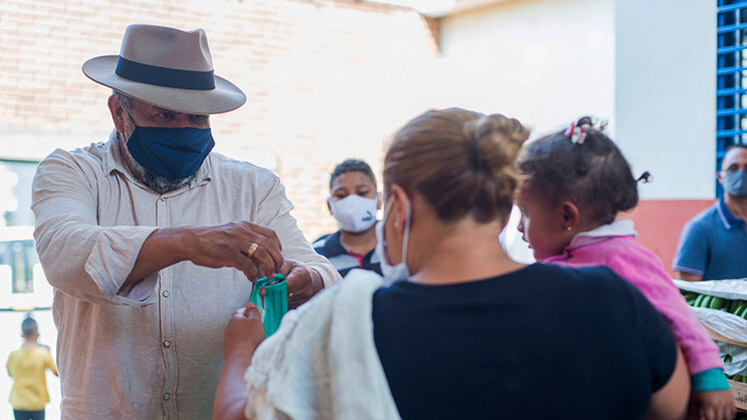
The problems of small-scale farmers
The first link in the fresh food supply chain has also been hit hard by the pandemic. The closure of schools, bars, and restaurants left many small-scale producers of fruit and vegetables with no way to sell their products. Faced with plummeting revenues, some farmers opted to destroy their crops instead of harvesting them. In essence, the cost of harvesting can no longer be recouped in a context of reduced sales, leading to massive wastage of nutrient-rich foods.
In a survey conducted by HF Brasil, 68 per cent of small-scale farmers stated that profits were either down or non-existent in June 2020. According to Brazil’s CEPEA, small producers of perishable fresh foods (such as leafy green vegetables, tomatoes, and bananas) were more severely affected by the pandemic due to their reliance on long supply chains to bring their goods to market. Given today’s uncertain outlook, some farmers have also reduced their crop areas, which will further impact consumer supply and prices in the medium term.
A more inclusive supply chain
A number of peculiarities of the products and players in the fresh food supply chain also make the situation even more complex.
Uncertainty around the climate, the long gap between planting and harvesting, severe fluctuations in demand, and the perishable nature of its products all make management of this chain extremely challenging.
Then there is the lack of infrastructure in urban and rural areas, with a wide variety of small-scale producers, intermediaries, and traders that lack proper support or training in the management of their businesses. Indeed, the prevalence of unsuitable methods, approaches, and behaviours affects various actors in this chain, even consumers themselves.
According to the FAO, 30 per cent of global food production is lost either through problems in planting, harvesting, storing, and transporting fresh products or through inappropriate retail practices and consumption habits. The amount of fruit and vegetables thrown away tends to be even higher in poorer countries, sometimes reaching fully 50 per cent of total production.
But making supply chains more inclusive and socially focused means more than just reducing food insecurity for the most vulnerable. It also requires a better understanding of shopping habits, preferences, and consumption, with consideration also of the management practices of small-scale retailers. At the other end of the chain, meanwhile, we need to take into account the challenges faced by smallholders in planting, storing, and distributing their products.
The problem during the pandemic has not been a lack of food, but rather an excess of food in the wrong channels and outlets. While farmers were throwing away a significant part of their production, favela residents were unable to access healthy food. This disconnect has aggravated food security issues just as it has increased crop losses and food waste.
Fortunately, several institutions have recently mobilised to connect the weakest links in the fresh food supply chain.
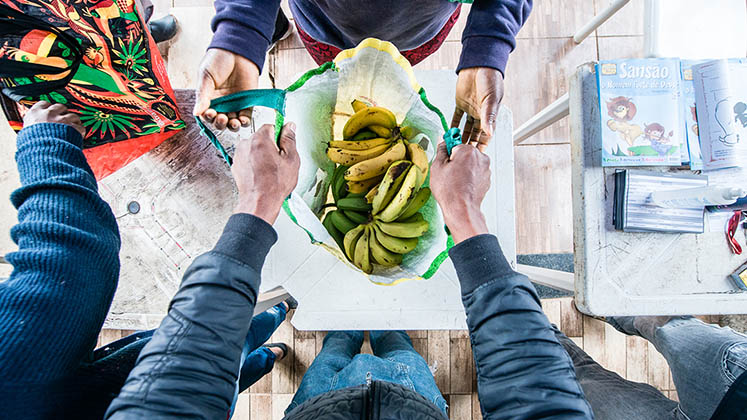
Connecting and protecting the weakest links
The Campo-Favela project (Countryside-Favela Project), started by researchers on the Engineering Food project run by Insper and LSE, has managed to raise more than USD$350,000 in donations. These funds were used to buy approximately 600 tons of fresh food from small-scale farmers, thereby supporting the livelihoods of approximately 1,300 families. These products were then distributed to 50 vulnerable communities in São Paulo and Rio de Janeiro, benefiting another 63,000 low-income households.
The project has been focused on connecting and assisting families in need, both in urban areas and on family farms. Families received baskets of fresh foods like fruit, vegetables, and eggs. These baskets were delivered to residents’ associations in vulnerable neighbourhoods that were then responsible for the “last mile” distribution to families. One of the project’s objectives was to open up a new sales channel for residents’ associations to trade directly with small-scale farmers.
This project has provided real-world evidence of the importance of rethinking food systems in large urban centers. But access to fresh food is only part of the solution, and it will also be necessary to provide better food education in poor communities. Likewise, small-scale local farmers, who often know very little about their clients, must improve their business management skills. Supply chains also need to be better integrated in order to reduce unacceptably high levels of loss and waste.
There are several bottlenecks that need to be explored, understood, and resolved, as well as several key actors that will need to take an active role in transforming ad hoc responses into sustainable, long-term solutions. But even in its current form, this provision of mutual, tangible benefits to low-income consumers and smallholder farmers in Brazil shows how supply chain management can be used to drive inclusion and equality.
Notes:
• The views expressed here are of the authors rather than the Centre or the LSE
• Please note that the images used here are not subject to the text’s Creative Commons license
• This article is part of an ongoing project entitled ‘Engineering Food: infrastructure exclusion and ‘last mile’ delivery in Brazilian favelas’, which is funded by The British Academy under its Urban Infrastructure and Well-Being programme.
• Please read our Comments Policy before commenting


